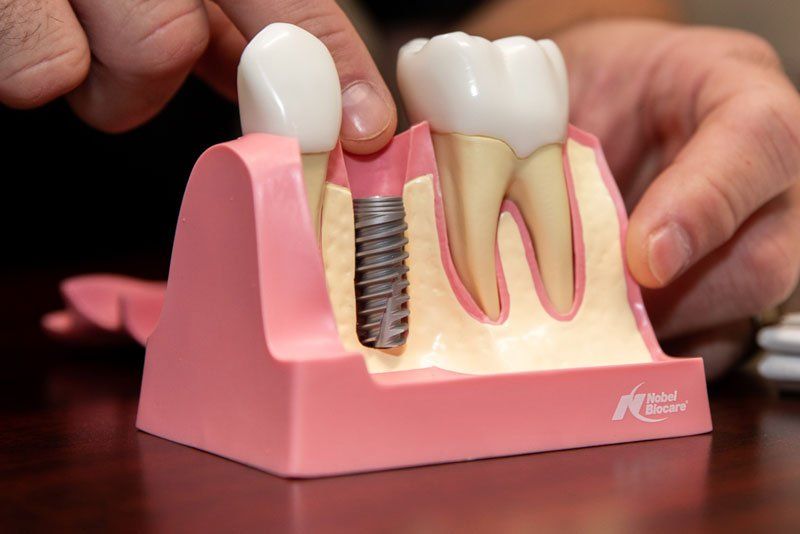(843) 216-0908
A Brief Guide to Dental Implant Surgery
Things to Consider Before Choosing Dental Implants
If you think implants could improve your smile, here are a few things to bear in mind when considering dental implants.
- Dental implant surgery is usually considered and elective, cosmetic dental procedure that dental insurance may not fully cover.
- The price of dental implants will vary depending on the procedure you need, the type of implant used, and other factors unique to your situation.
- Although you can expect to have some out-of-pocket costs, there are many ways to finance dental implants.
- You should discuss any payment plan requirements with the dental office prior to scheduling the surgery.
Understanding the Dental Implant Procedure
The dental implant procedure requires multiple steps.
During the initial consultation, the doctor must determine if the structure of the underlying jawbone is strong enough to withstand the procedure. If not, the dentist may need to complete a bone graft before surgery to strengthen the jawbone. It might also be necessary to extract teeth or other preparatory work before the actual implant procedure begins.

The Dental Implant Process
Once your mouth and gums are ready for the surgery, the dentist embeds one or more titanium screws to support the implant crowns that will later be mounted on the posts. After the procedure, the surrounding gums must heal, and the bone must fuse with the titanium post. Once the fusion takes place, it is time to create a ceramic crown for each replacement tooth.
An implant uses titanium because it is a durable metal the body will not reject. The titanium also does not affect the surrounding tissue and is strong enough to support the jawline, preventing damage to any remaining teeth. Adverse reactions to the new titanium root are highly unusual.
Dental implants can be used to address a single missing or broken tooth or be used to restore an entire upper or lower arch of teeth, returning your smile to its former glory, and improving your overall dental health and function in the process.
FAQs
- Are you put to sleep for teeth implants?
Depending on the complexity of the case, patients are usually sedated using conscious oral sedation in combination with local anesthetic, or, placed under a deeper general anesthetic during the surgical placement of the dental implant posts into the jaw.
- Do you need antibiotics after dental implant?
While not mandatory, prophylactic antibiotic treatment helps improve the long-term survival and success rates of dental implants and is helpful in reducing the incidence of postoperative infection after dental implant surgery.
- Are teeth implants painful?
Dental implants are a permanent solution to replace one or more missing teeth. The procedure is usually performed under general anesthetic with an associated local anesthetic to completely numb the jaw. After you awaken form the surgery and the local numbing agent wears off, you may experience mild pain and bruising for several days which is usually controlled well will over the counter pain medication. After you have healed form the surgery, you should no longer experience any pain.
- Who should not get dental implants?
Dental implants involves a surgical procedure to place the implant post under general anesthesia. For this reason, people who have difficulty with general anesthesia, or those with blood clotting issues, a suppressed or compromised immune system, have issues healing, have cancer or uncontrolled diabetes may not be a suitable candidate for dental implants.
- How long after extraction can you get an implant?
In most cases it is recommended to wait 3-6 month after a tooth has been removed to allow the area to heal and new bone to regenerate. However, with a healthy underlying jawbone, it may be possible to extract a tooth and place the implant post during the same visit.
The post A Brief Guide to Dental Implant Surgery appeared first on Smiles by Hogan.
CONTACT
Information
Phone: (843) 216-0908
Address: 3405 Salterbeck St. STE 100
Mt. Pleasant, SC 29466
Email: office@smilesbyhogan.com
BUSINESS
Hours
- Monday
- -
- Tuesday
- -
- Wed - Thu
- -
- Friday
- -
- Sat - Sun
- Closed
















